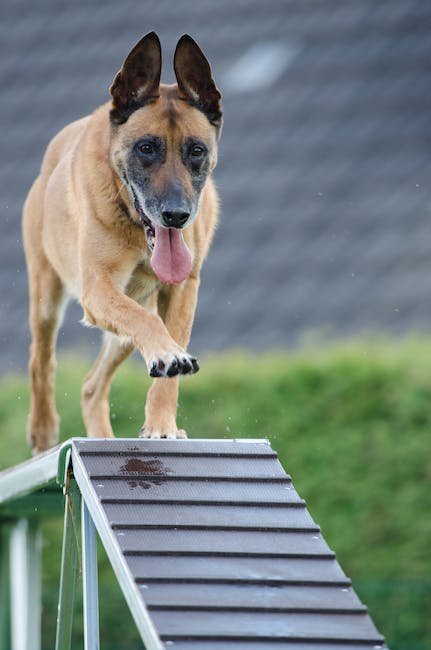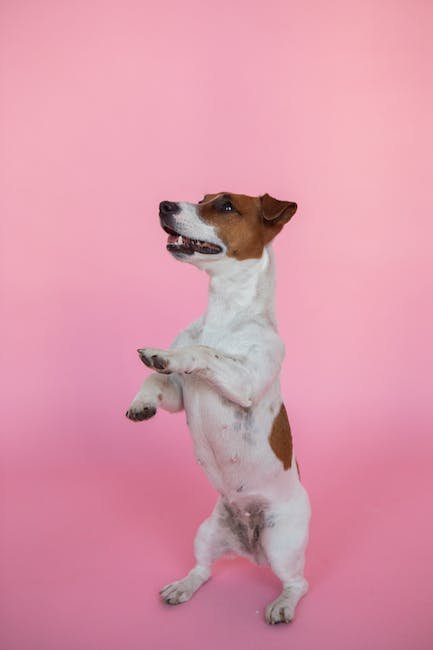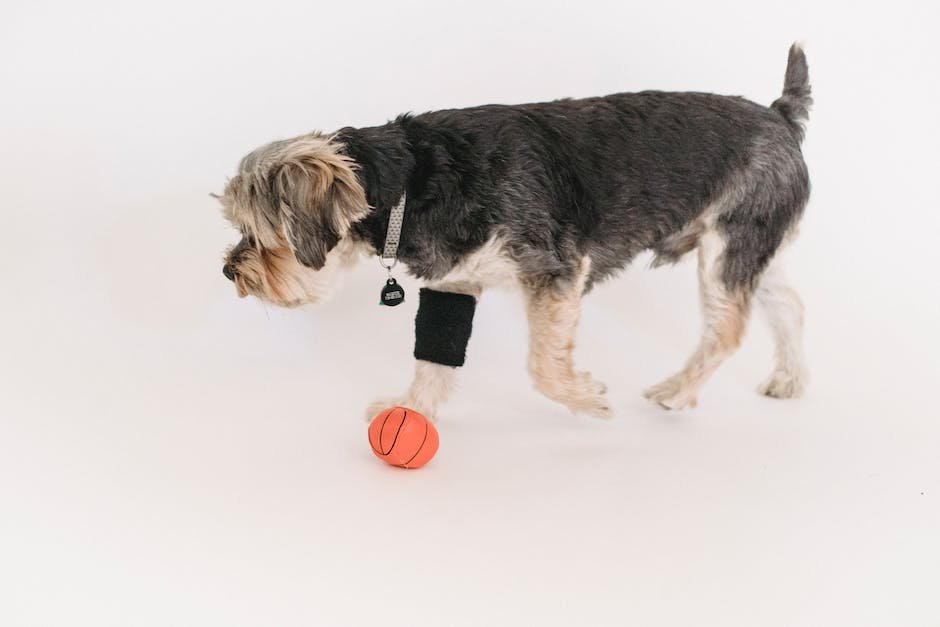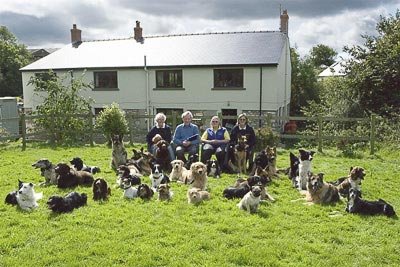Are you ready to embark on a playful and educational adventure with your family? Look no further, for puppy training is here to transform the lives of youngsters and their four-legged friends alike. By fostering a dynamic bond between children and dogs, puppy training becomes more than just a task; it becomes a family affair filled with love, laughter, and boundless opportunities for growth. So, grab your leashes, gather everyone around, and let the pawsitively delightful journey begin!
Table of Contents
- Introducing a New Best Friend: The Benefits of Puppy Training for Kids
- Building a Strong Bond: How Puppy Training Can Strengthen Family Relationships
- Teaching Responsibility and Compassion: The Important Life Lessons of Puppy Training
- Creating a Safe and Harmonious Home: Essential Tips for Puppy Training with Kids
- Fostering a Lifetime of Friendship: Maintaining the Connection with Your Trained Puppy
- Q&A
- Wrapping Up

Introducing a New Best Friend: The Benefits of Puppy Training for Kids
Bringing a new puppy into the family is not only exciting, but it also offers a multitude of benefits for kids. Furry, playful, and oh so lovable, a well-trained pup can be a fantastic companion for children of all ages. Let’s explore some of the incredible benefits that puppy training can bring to your kids’ lives:
- Responsibility: Training a puppy requires dedication, commitment, and nurturing, teaching kids valuable lessons about responsibility. From feeding and grooming routines to potty training and obedience commands, kids learn to take care of another living being.
- Compassion: Interacting with a puppy teaches children compassion and empathy. By understanding the needs and emotions of their four-legged friend, kids develop a sense of kindness and compassion towards animals and humans alike.
- Communication Skills: Training a puppy involves clear and consistent communication. Kids need to learn how to give clear commands and signals, helping them develop their communication skills. This can translate into better communication with family members, friends, and teachers.
So, not only does training a puppy provide endless fun and laughter, but it also imparts essential life skills to children. Building responsibility, compassion, and communication skills are just a few of the incredible benefits that come along with welcoming a new furry friend into your family.

Building a Strong Bond: How Puppy Training Can Strengthen Family Relationships
Puppy training is not just about teaching our furry friends basic commands; it goes beyond that, leaving a lasting impact on our family dynamics. As we engage in this shared experience with our new four-legged addition, we inadvertently strengthen the bond among family members.
Through the process of teaching and reinforcing positive behaviors, family members are encouraged to work together and communicate effectively. Each family member plays a role in training the puppy, allowing them to develop a sense of responsibility and teamwork. This shared responsibility fosters a greater sense of trust and understanding within the family unit.
Moreover, puppy training provides an opportunity for family members to spend quality time together. Whether it’s practicing commands, going for walks, or engaging in playtime, these activities promote a sense of companionship and create cherished memories. Regular interactions with the puppy also help alleviate stress and promote relaxation, allowing family members to connect on a deeper level.
Benefits of Puppy Training on Family Relationships:
- Improved communication: Training a puppy requires clear and consistent communication, fostering effective communication skills among family members.
- Strengthened teamwork: Sharing the responsibility of puppy training encourages family members to work together as a team.
- Enhanced trust and understanding: Successful training creates a strong foundation of trust and understanding within the family unit.
- Increased quality time: Engaging in training activities provides opportunities for family bonding and creates lasting memories.
- Reduced stress: Interacting with a puppy has been shown to have therapeutic effects, helping family members relax and unwind together.
In conclusion, puppy training is not just about teaching a dog proper manners; it plays a significant role in building a strong bond within the family. The shared responsibilities, improved communication, and quality time spent together all contribute to creating a harmonious and loving family dynamic.

Teaching Responsibility and Compassion: The Important Life Lessons of Puppy Training
When it comes to raising a puppy, there is so much more to it than just feeding and grooming. Puppy training is not only about teaching them basic commands and good behavior; it’s about instilling responsibility and compassion in both the puppy and its owner. Here are some valuable life lessons that puppy training can impart:
- Patience: Training a puppy requires immense patience. It teaches us the virtue of being calm and composed, even in the face of challenges. As we guide our furry friends through the process, we learn that great things take time and effort.
- Consistency: Dogs thrive on consistency, and so do we. Through puppy training, we understand the importance of being consistent in our actions and expectations. By being consistent, we build trust and develop a strong foundation in our relationships.
- Empathy: Understanding and empathizing with our puppies’ needs and emotions is crucial for effective training. It teaches us to put ourselves in their paws, recognizing that they may learn and communicate differently than we do. This empathy extends beyond training and enhances our ability to connect with others in a compassionate manner.
Puppy training, therefore, goes far beyond teaching tricks. It is a transformative experience that shapes not only our four-legged friends but also ourselves. Embracing the challenges and lessons of puppy training can guide us towards becoming responsible, compassionate individuals who are capable of creating meaningful connections with our beloved pets and our fellow humans.

Creating a Safe and Harmonious Home: Essential Tips for Puppy Training with Kids
Welcoming a new puppy into your home is an exciting time for the whole family, especially for kids. However, it’s important to ensure a safe and harmonious environment for both your puppy and your little ones. Here are some essential tips to consider when it comes to puppy training with kids:
Puppy-proofing your home:
Before bringing your furry friend home, puppy-proofing your space is crucial. Ensure that all potentially dangerous objects or substances are out of reach for both the puppy and your children. Consider organizing these tips into a checklist for easy reference:
- Store cleaning supplies and chemicals in locked cabinets.
- Secure electrical wires and cords.
- Keep small toys, buttons, or any choking hazards off the floor.
- Put away shoes, clothes, or any items that the puppy could mistake as toys.
Teaching gentle interactions:
It’s important to teach your children how to interact with the puppy gently, helping establish a positive relationship from the start. Here are some ways to encourage gentle interactions:
- Explain the concept of gentle touch and the importance of speaking softly to the puppy.
- Show your children how to properly pet the puppy, using light strokes and avoiding pulling on their ears or tail.
- Teach kids never to disturb the puppy when they are eating or sleeping.
Supervision and responsibility:
While puppy training, it’s crucial to supervise all interactions between your puppy and your kids. This ensures the safety of both parties and helps to prevent any unintentional harm. Additionally, promoting responsibility among your children will create a harmonious atmosphere at home. Encourage your kids to:
- Participate in short training sessions under your guidance.
- Assist in feeding and grooming the puppy (under supervision).
- Help to create a routine for daily walks and playtime.
By following these essential tips, you can create a safe and harmonious home for both your puppy and your kids. Remember, each puppy is unique, so patience and consistency are key when training. Cherish this bonding experience, as your family grows together with your lovable new furry companion.
Fostering a Lifetime of Friendship: Maintaining the Connection with Your Trained Puppy
Building a strong and lasting friendship with your trained puppy is a precious gift that keeps on giving. Beyond the initial training period, it is important to actively maintain the connection with your furry companion to ensure a long and fulfilling relationship. Here are a few tips to foster a lifetime of friendship with your trained puppy:
-
Regular Exercise: Engaging in physical activities with your puppy not only promotes their physical well-being but also strengthens the bond between you. Take them for daily walks, play fetch in the park, or try out a new dog sport together. Regular exercise keeps their energy levels balanced and instills a sense of trust and companionship.
-
Socialization: Just like humans, dogs thrive on social interactions. Continue exposing your puppy to new environments, people, and other animals. This helps reinforce their training and ensures they remain confident and friendly in various situations. Puppy playdates, obedience classes, or joining a local dog club provide opportunities for socialization and can strengthen the friendship between you and your furry friend.
-
Quality Time: Spending dedicated time together is essential for maintaining a strong bond. Set aside daily bonding sessions where you engage in activities that your puppy enjoys, such as grooming, puzzle games, or simply snuggling together on the couch. This special one-on-one time allows you to connect with your puppy emotionally and reinforces the trust and love you have for each other.
Remember, building and maintaining a lasting friendship with your trained puppy requires ongoing effort and dedication. By incorporating these tips into your routine, you can strengthen your bond and ensure a lifetime of friendship and companionship with your furry companion.
Q&A
### **Q: Can kids effectively train a puppy?**
A: Absolutely! Kids can be fantastic puppy trainers with the right guidance and responsibilities. It’s crucial to involve the entire family to ensure consistency and support throughout the training process.
### **Q: At what age can kids begin training a puppy?**
A: Kids can start assisting with puppy training as early as six or seven years old, with close supervision from an adult. As they grow older, they can gradually take on more responsibility and actively participate in all aspects of training.
### **Q: How can children be taught to handle a puppy safely?**
A: Teaching children to respect a puppy’s boundaries is crucial. Encourage them to approach the puppy calmly, using gentle, slow movements. Teach them how to properly hold and pet the puppy to ensure both their safety and the puppy’s comfort.
### **Q: What are some effective training methods for kids and puppies?**
A: Positive reinforcement techniques, such as treats and praise, work exceptionally well when training puppies with kids. Encourage children to use clear, simple commands and reward the puppy immediately when they follow instructions.
### **Q: Should kids be involved in all aspects of puppy training?**
A: Involving kids in all aspects of puppy training is beneficial. From basic obedience commands to housebreaking and socialization, kids can learn invaluable skills by actively participating in the various training activities.
### **Q: How can kids help with housebreaking a puppy?**
A: Kids can assist in housebreaking by taking the puppy outside on a consistent schedule, rewarding them when they eliminate outdoors, and promptly cleaning up any indoor accidents. Supervision is crucial to prevent accidents and ensure the puppy’s well-being.
### **Q: What should kids do if their puppy misbehaves during training?**
A: When a puppy misbehaves during training, children should remain calm and not shout or punish the puppy. Instead, instruct kids to redirect the puppy’s behavior to a more acceptable one and reinforce positive actions.
### **Q: How can parents ensure kids remain engaged in the puppy training process?**
A: Parents can ensure children stay engaged by making training sessions fun and interactive. Incorporate exciting activities, such as obstacle courses or trick training, to keep kids excited about teaching their puppy new skills.
### **Q: Are there any precautions parents should take when kids train puppies?**
A: Some precautions include never leaving young children unsupervised with a puppy and avoiding overly challenging tasks that may frustrate the child or overwhelm the puppy. Safety should always be the priority when kids are involved in training.
### **Q: What are the long-term benefits of kids training a puppy?**
A: The benefits of children training a puppy extend beyond obedience. It helps foster a sense of responsibility, empathy, and patience in kids, while also strengthening the bond between the child and the puppy, creating lifelong companionship.
Wrapping Up
As the sun sets on our playful puppy training adventure, we hope that this article has opened a world of possibilities for your family. Just like the gentle wag of a puppy’s tail, training our furry friends can bring joy to every member of the household.
From teaching the basics like sit and stay, to instilling kindness and responsibility in young hearts, puppy training truly is a remarkable family affair. Each wagging tail and slobbery kiss is a testament to the bonds that can be built between children and their four-legged companions.
Through this journey, we have discovered that puppy training is not just about obedience, but rather an opportunity for growing together as a family. It is a chance to learn patience, practice empathy, and watch as our little ones blossom into responsible pet owners.
But beyond the lessons learned, there is pure magic in the laughter-filled puppy playdates and the endless chase of tennis balls across the green grass. In the eyes of a child, a world of imagination is awakened as they witness their puppy conquer new tricks, tapping into their own sense of wonder and possibility.
So, as we conclude this enchanting exploration into puppy training for kids, we encourage each family to embrace the joy and love that these adorable creatures bring to our lives. Whether it be a high-five for a well-executed command or a snuggle on a rainy day, the unbreakable bond between child and pup is a treasure worth cherishing.
Let the journey of puppy training become a cherished memory, an ode to the lessons learned, the laughter shared, and the unbreakable bond between little hands and fluffy paws. Remember, as you embark on this adventure together, every step taken, every hurdle overcome, brings smiles and tail wags that will etch themselves into your family’s history forever.
So, go forth, young trainers, and let the pawsitive adventures begin. May your hearts be filled with endless joy and your homes be filled with boundless love. From our family to yours, happy training!
As an affiliate, my content may feature links to products I personally use and recommend. By taking action, like subscribing or making a purchase, you’ll be supporting my work and fueling my taco cravings at the same time. Win-win, right?
Want to read more? Check out our Affiliate Disclosure page.